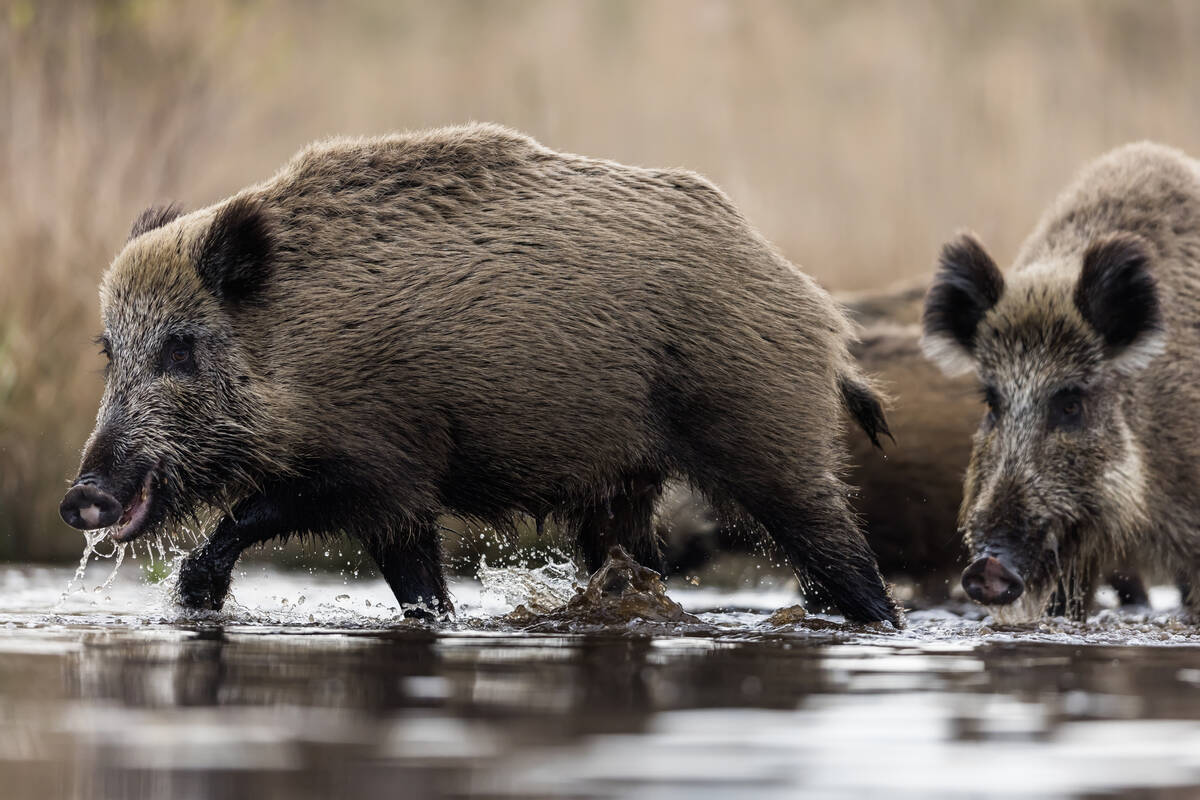Speaker doesn’t advocate a return to old-fashioned farming and welcomes agricultural advances like GM crops
Jay Ingram, a science communicator known for his work on the Discovery Channel, is a pragmatist when it comes to food production and the environment.
He wants the public to be concerned about wildlife, habitat and ecosystems, but he also realizes that the world’s 7.3 billion people need to eat.
“How can we produce enough food to feed everybody without dangerously compromising biodiversity?” Ingram told the Manitoba Conservation Districts Association’s annual meeting in Brandon Dec. 8.
Ingram is best known for hosting the Daily Planet show on the Discovery Channel, but he also hosted CBC Radio’s Quirks & Quarks show for 13 years and written 13 books about science and the brain.
Read Also

Manitoba bans wild boar possession
Manitoba has tightened the regulatory status of Eurasian wild boar in an effort to help fight back against invasive wild pigs.
He said preventing the extinction of wildlife species is important, but humanity will have to make hard choices about food production and animal species as agriculture and cities further encroach onto wild habitat.
However, Ingram doesn’t think modern agriculture is the villain in this story. He supports agricultural technology that boosts yields and reduces the need for additional acres.
“Ideally, we can produce more food (in the future) without greatly expanding our footprint. There are people who are optimistic we can do that. Maybe by using genetically modified crops…. I’m not the least bit worried (about GMOs)…. We don’t know of any risk … to humans,” he said.
“(If) you look at countries like Argentina and Venezuela, they’re not worried about GMOs. They realize they can produce much more food, and they take the science at face value.… I think there are going to be way more countries in the world that see GMOs as the answer than will see it as an unpalatable risk.”
Ingram also takes a pragmatic approach toward pesticides.
Neonicotinoid seed treatments have been blamed for a decline in pollinator populations, but Ingram said they may be preferable to alternate technologies.
“Neonics are a lot better for the environment than the pesticides that they used to use.”
He is concerned about how bees are used to pollinate crops because the fruit and nut industries may be draining bee colony resources.
“If you take pollinators, like honeybees, I suspect they’re pretty resilient … but we are pushing them to the limits,” he said.
“The almond crop in California, truck them all in…. You don’t have to be genius to say, ‘that doesn’t sound sustainable.’ ”
Ingram’s general message, that agricultural technology can be part of the solution, was the opposite of a previous keynote speaker at the Manitoba Conversation Districts Association meeting.
In 2012, David Suzuki told the convention that pesticides, GMOs and agricultural technology are the problem.
“Everybody tells me that the goal of industrial agriculture is to feed the world’s masses. This is (how) Monsanto and all these companies justify genetically modified organisms… it’s just a rationalization to justify what they are doing (making money),” Suzuki said.
“The idea of using pesticides, which I think is the dumbest thing that we’ve ever invented, to think we can manage nature with pesticides, I just have to scratch my head…. We’ve got to get back to growing food the ways farmers did 60 years ago, where you used green manure and compost, and start using human feces the way the Chinese did 50 years ago. We’ve got to rediscover these things.”
Ingram didn’t talk about turning back the clock. Instead, he emphasized the importance of strategic choices.
The demand for food and re-sources will increase as global population expands. Ingram said humans might have to decide which species to preserve and which to forsake.
For instance, wolves might be an essential species in western North America but a certain wild bird may not be.
“We (may) have to be selective. People don’t like to think of triage. It implies giving up,” he said. “(But) there are going to be many tradeoffs. If it comes to a tradeoff between allowing a dramatic increase in the human population versus saving a few species, I think (we) know where that is going to go.















